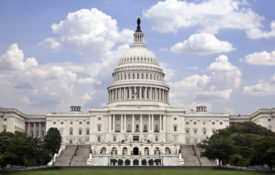-
Why People Latch on to Conspiracy Theories, According to Science
Insurgents swarmed the U.S. Capitol on January 6 to create chaos and defy legislators who had gathered to certify electoral votes. The presidential election, they say, was stolen—a belief encouraged by a powerful and trusted leader. ... But the idea that the election was rigged is, by definition, a conspiracy theory—an explanation for events that relies on the assertion that powerful people are dishonestly manipulating society. In reality, dozens of lawsuits espousing accusations of voter fraud have been thrown out by state and federal courts. ... Experts say that the majority of people do not easily fall for falsehoods.
-
Worried About Your Toddler Right Now? Take a Deep Breath
As Ashlyn Atigre prepared to take her healthy son to the pediatrician for his 3-year-old well visit recently, a nagging concern was on her mind. "I want to talk about the social impact of the pandemic with the doctor," said the Tampa, Florida, mother. "I'm an introvert but clearly need people. And I'm seeing his shyness increase and wondering if it's Covid, if I'm just seeing my genes or if it's because he's almost three and at a new (stage) in life." ...
-

2020 Year in Review
What happens when APS Media Relations director Charles Blue chats with APS Senior Science Writer Ludmila Nunes? A fun discussion on 2020’s most interesting research, that’s what! Many of the major news stories of 2020
-

Statement on Riot at U.S. Congress
Statement by APS Executive Director Robert Gropp on the riot at the U.S. Capitol Building.
-

The Challenges of Military Veterans in Their Transition to the Workplace
Podcast addresses the long-standing structural features of the military that have created a culture and society that is dramatically different and disconnected from civilian society.
-
This One Simple Trick Can Make Your New Year’s Resolution More Likely to Stick
Want to replace your television habit with exercise? "I want to start running" could work better than "I want to quit watching TV so much." How we phrase our New Year's resolution could give us a slight edge as to whether or not we'll stick to the new habit, according to a study published Wednesday in the open-access journal PLOS One. Frame your resolution in the positive, as something you're committing to doing may work better than framing your goal around quitting a bad habit or avoiding a particular greasy food. Researchers at Stockholm University and Linköping University in Sweden analyzed resolutions made by 1,066 people.

